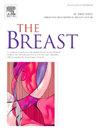Immediate breast reconstruction on overall and breast cancer-specific survival: A propensity score matched analysis
IF 5.7
2区 医学
Q1 OBSTETRICS & GYNECOLOGY
引用次数: 0
Abstract
Background
The trend towards breast reconstruction post-mastectomy has increased, aiming to enhance patient outcomes and quality of life. This study examines the impact of immediate breast reconstruction (IBR) on survival outcomes compared to mastectomy alone (MA).
Materials and methods
We conducted a retrospective cohort study of breast cancer patients aged 20–79 years with MA or IBR from 2010 to 2015. Propensity score matching (PSM) was utilized to balance the cohorts. Survival analysis assessed overall survival (OS) and breast cancer specific survival (BCSS), with subgroup analysis was performed.
Results
The median follow-up period was 93 months. After PSM, 16,220 female patients were matched. IBR was associated with improved OS (HR = 0.74, 95 % CI 0.69–0.79, p < 0.001) and BCSS (HR = 0.84, 95 % CI 0.78–0.91, p < 0.001). Patients who needed radiotherapy tended not to receive IBR. IBR achieved a survival advantage in OS across the subgroups including age, marital status, histology grade, T stage, N stage, chemotherapy status, and radiotherapy status. In patients aged 60−79 years, with Black ethnicity, with local median household income <$50,000, IBR's survival advantage is in OS but not BCSS and IBR was not inclined to be chosen among these groups.
Conclusion
IBR's OS advantage over MA is universal in all stratified age groups, marital statuses, histology grades, T/N stages, and chemo/radiotherapy statuses. For patients aged 60−79 years, with Black ethnicity, with a local median household income <$50,000 and requiring radiotherapy, IBR is survival-beneficial but these groups tend not to receive it.
立即乳房重建对总体和乳腺癌特异性生存的影响:倾向评分匹配分析
背景:乳房切除术后乳房重建的趋势有所增加,目的是提高患者的预后和生活质量。本研究探讨了与单纯乳房切除术(MA)相比,立即乳房重建(IBR)对生存结果的影响。材料和方法我们对2010 - 2015年20-79岁MA或IBR乳腺癌患者进行了回顾性队列研究。使用倾向评分匹配(PSM)来平衡队列。生存分析评估总生存期(OS)和乳腺癌特异性生存期(BCSS),并进行亚组分析。结果中位随访时间为93个月。经PSM后,匹配16220例女性患者。IBR与OS改善相关(HR = 0.74, 95% CI 0.69-0.79, p <;0.001)和bcs (HR = 0.84, 95% CI 0.78 - -0.91, p & lt;0.001)。需要放疗的患者往往不接受IBR。包括年龄、婚姻状况、组织学分级、T期、N期、化疗状态和放疗状态在内的亚组中,IBR在OS中获得了生存优势。在60 ~ 79岁、黑人、当地家庭收入中位数为5万美元的患者中,IBR的生存优势在OS而不是BCSS中,并且在这些组中不倾向于选择IBR。结论在所有分层年龄组、婚姻状况、组织学分级、T/N分期和化疗/放疗状态中,ibr的OS优势均优于MA。对于60 - 79岁,黑人,当地家庭收入中位数为50,000美元,需要放疗的患者,IBR对生存有益,但这些群体往往不接受它。
本文章由计算机程序翻译,如有差异,请以英文原文为准。
求助全文
约1分钟内获得全文
求助全文
来源期刊

Breast
医学-妇产科学
CiteScore
8.70
自引率
2.60%
发文量
165
审稿时长
59 days
期刊介绍:
The Breast is an international, multidisciplinary journal for researchers and clinicians, which focuses on translational and clinical research for the advancement of breast cancer prevention, diagnosis and treatment of all stages.
 求助内容:
求助内容: 应助结果提醒方式:
应助结果提醒方式:


